SourceBottle Beginner's Guide: Tutorial, Techniques and Tips
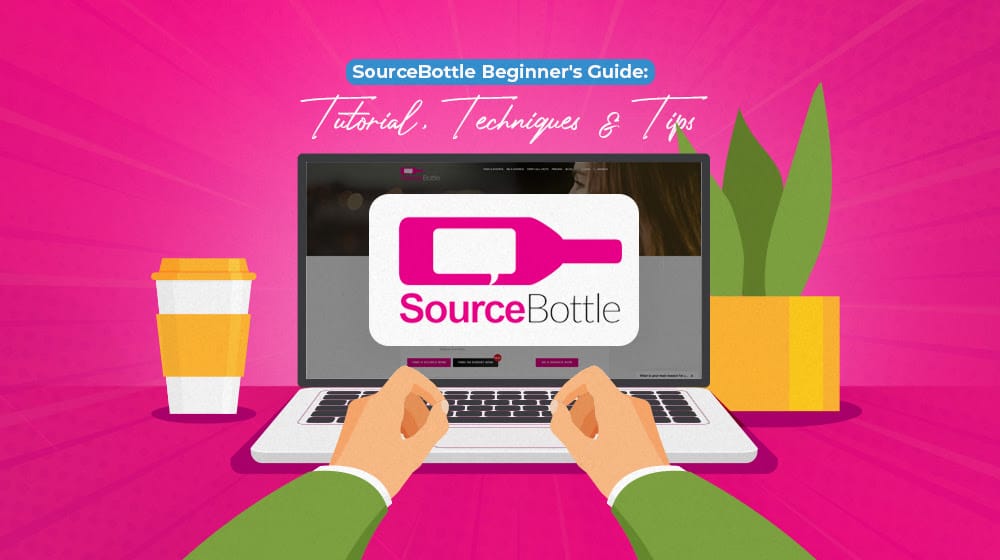
Now that Connectively/HARO is dead, marketers, journalists, publishers, and creators are going to be searching for alternatives. I just wrote a nice guide to my favorites, and I already had deeper-dive usage guides for the two best, so I'm rounding it out with a third. For reference, you can see the other two here:
So, let's talk about what SourceBottle is, what you can get out of it, and how to use it effectively.
What is SourceBottle and How Does it Work?
SourceBottle is a PR platform where content creators like bloggers and journalists can seek out subject matter experts to get quotes, references, and information for their content.
For example, if I was writing a case study on Google's latest SEO update, I could post a request for experts to weigh in on how it affected them. I could then use their quotes in my case study.
Flipping it around, I can register as a source. As a B2B marketing agency, I have a lot of insight I can share, so I can seek out requests that fit my expertise and submit my information. If the journalist in question likes what I have to say, they can use it and link to me. Win/win from both angles.
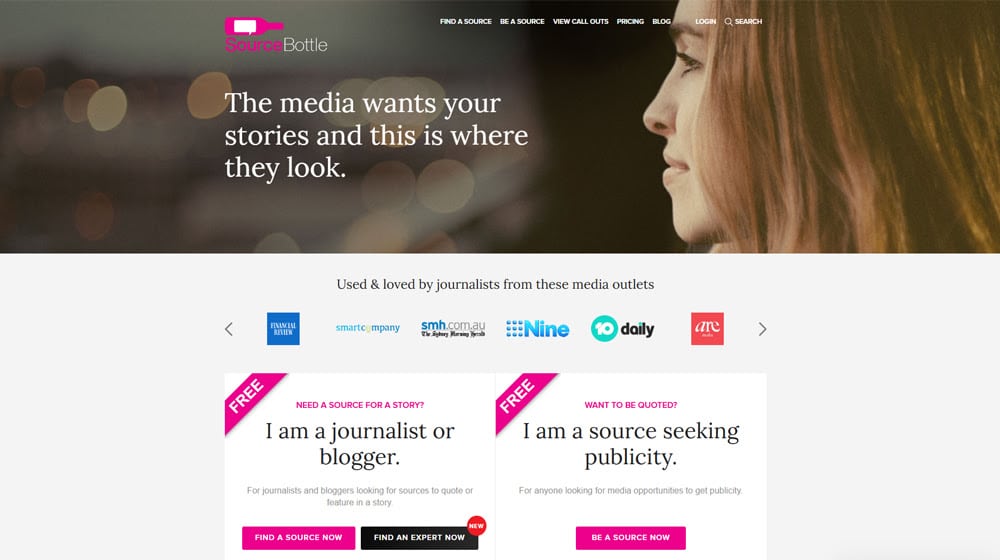
SourceBottle has a few quirks that make it a little different from the other PR platforms.
First of all, they're international. SourceBottle started as an Australian company and has expanded to the US, Canada, New Zealand, and Singapore. It's all English-language, at least as far as I've seen.
The platform is largely free to use but has some paid features. For $25 per month, SourceBottle will:
- Let you view expert-posted case studies you can use in your content without needing to go through the pitch-and-answer process.
- Find giveaways and goodie bags full of products you can review for your website.
- Have a visible-to-publishers Expert Profile you can fill out with key details and expertise, which is both searchable and automatically attached to your pitches.
You can get an idea of the kinds of requests you'll see by browsing their recent public requests. Note that the publicly-visible requests are just a selection and they aren't all of the ones available, and they can be fairly old, so just use them as an idea, not a resource.
Using SourceBottle as a Blogger or Journalist
The bulk of this post is going to be focused on using SourceBottle as an expert, since the general use case for these kinds of sites is for link building. But, I wanted to cover both sides of the coin, at least in brief.
If you want to use SourceBottle as a publisher, that's cool! You're a valuable resource as long as your site is worthwhile. I know I, and many other experts, are disheartened when a publisher turns out to have near-zero traffic or a delisted site, so please don't bother if you don't have at least some presence.
It's honestly pretty easy to get value out of SourceBottle as a publisher. You have a request, and you make it. Experts submit answers to you, and you can follow up with them for more information. You can also browse expert profiles directly if you pay for an account and can reach out and contact them directly.
Here's an example of the kind of profile you might see.
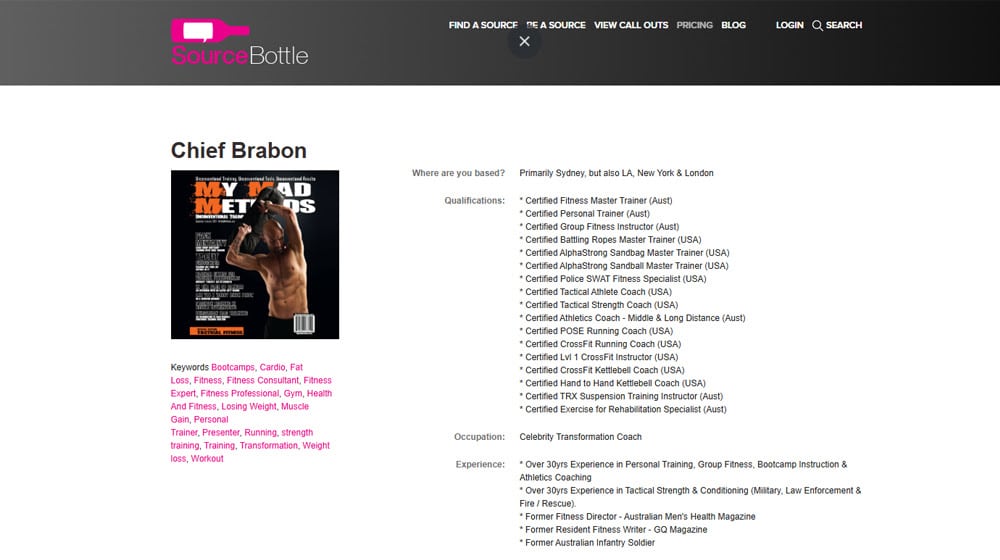
You get a name, photo, set of keywords, and information about the expert, including:
- Where they're based
- Their qualifications in their field
- Their occupation
- Their experience
- Their website and social profiles
- Their personal interests
- Their personal story and bio
- Whether or not they're up for interviews or being photographed
All of this gives you a pretty good idea of whether or not you want to trust that person as a source.
When you get information you can use, use it, cite the source, and you're good to go.
Using SourceBottle as an Expert
Using SourceBottle as a subject matter expert is a lot harder. You have a lot of competition for the attention of the publishers, so you need to be able to craft a great pitch in a very short amount of time.
SourceBottle call-outs (as they're called) arrive via email in the same way Connectively worked. When you see one you like, you follow the link to the call-out, write your pitch, and submit it. As always, success depends on being able to make the most out of your time and your pitches, so let's dig right into my tips for getting successful pitches through.
Pay for an account.
Pretty much every PR platform is only going to be worth using if you're willing to pay for it. SourceBottle is almost an outlier here! They don't have an elaborate pricing scheme or tiered plans or anything like that. It's just one simple $25/month account. The added features you get for that paid plan are good enough that it's worth the fee, and it's not expensive enough to break the bank. My other tips will assume you're paying for the account and features, so keep that in mind.
Temper expectations.
Before going all-in on SourceBottle, I recommend tempering your expectations. It's one of the better PR connection platforms out there now that Connectively is dead, but that's not actually saying much.
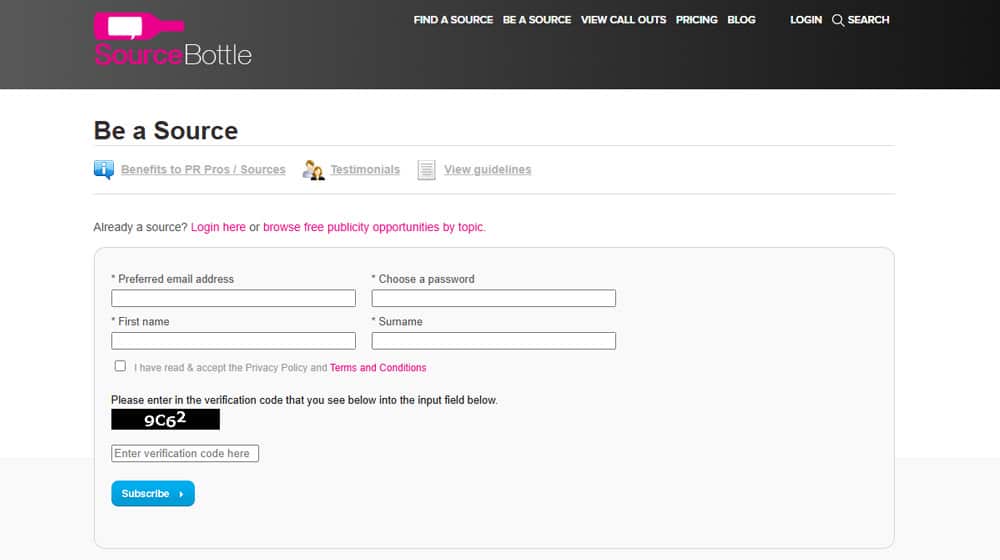
In my experience, you're going to get a lot of small brands and blogs and not a lot of major sites. If you go into it expecting to land citations on HuffPo or the AP or what have you, well, you'll be disappointed. If you're fine with low- to mid-range link building, it's perfectly acceptable.
Fill out your expert profile.
The expert profile is very valuable. It's visible to anyone with a publisher account, and SourceBottle has been encouraging publishers to browse expert profiles and reach out directly more and more recently. By maintaining an updated expert account with all of the relevant information, you might occasionally get publishers reaching out to you directly via email or social media.
Your expert profile is also automatically attached to the pitches you send to publishers in response to call-outs. It's good to make sure your profile is updated because of that, but don't rely entirely on having it, for reasons I'll get into shortly.
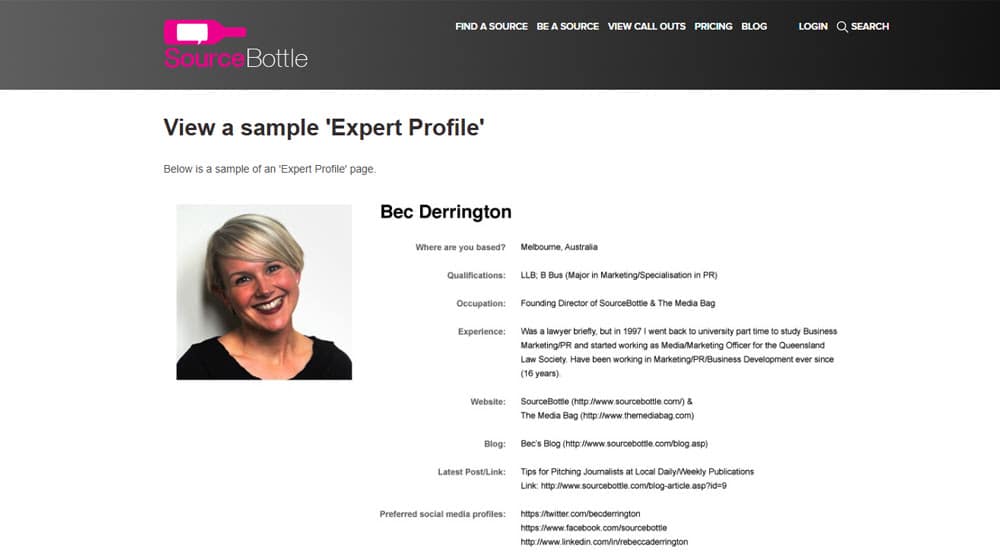
Don't be afraid to let people know how to contact you directly. Sure, you'll probably see an uptick in spam, but you'll also potentially get some useful contacts. Alternatively, set up a secondary email account you can use so that if it ends up not being helpful, you can just ignore it.
Include a brief profile in your pitch.
In my opinion, your pitch should follow a pretty basic format. The goal is to have something easy to customize for a call-out, but consistent enough that you can use it rapidly.
The first part of your pitch should be 2-3 sentences about who you are and why your expertise is good to respond to the call-out. You don't want to drone on about yourself, but you need to lead with why you're the one they should pick.
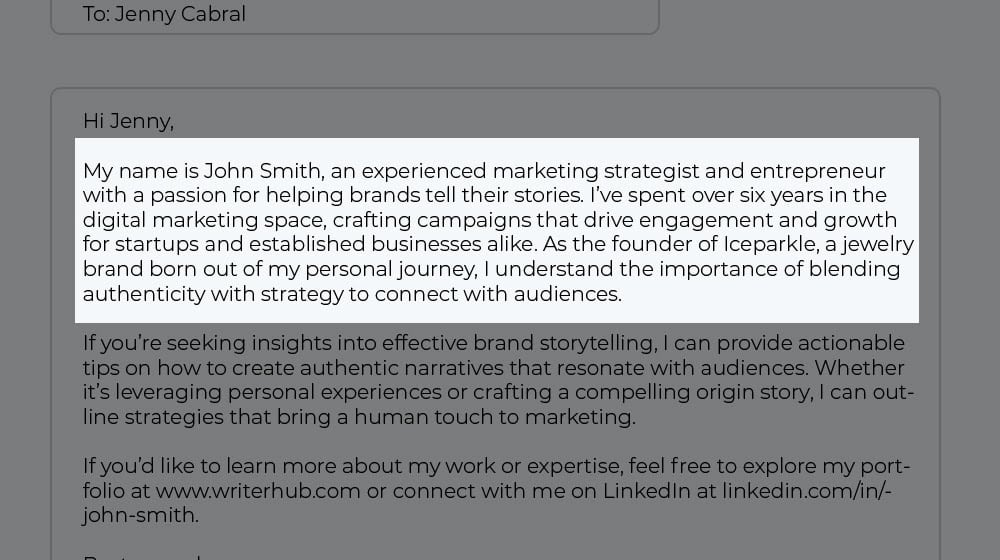
The expert profile is great, don't get me wrong. But, if the initial pitch doesn't hook the publisher, they won't even look at it. So, you need a section on who you are and why you're valuable. Then, a section answering their call-out. Finally, if they want to learn more about you, they can check your profile.
If you're thinking about a blog post byline box for a guest post, you're on the right track.
Subscribe only to relevant keywords.
The biggest key to making good use of SourceBottle is being judicious in which keywords you subscribe to. If you're a lifestyle blogger, you probably aren't going to get much use out of the technology, property, or finance sections, right? A finance blog isn't usually going to benefit from call-outs in the environment section.
That's not to say you can't! A finance blog could write money content for a travel blog, a parenting blog, or anything else. The two things to keep in mind, though, are whether or not your expertise is attractive to the publisher and whether or not the link or traffic you get would be valuable to you.
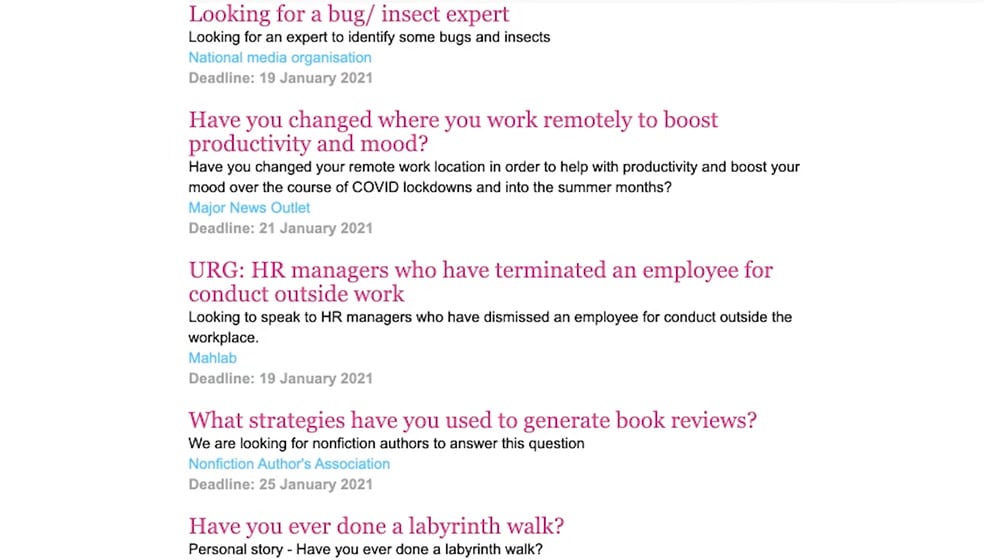
One of the greatest limitations of SourceBottle is that it's heavily skewed toward lifestyle, travel, parenting, and food niches. There's relatively little for most other industries. Scope it out! All it takes is a couple of wins to make the time and investment worthwhile.
Keep your pitches short and simple.
If your bio is 2-3 sentences, your pitch should be no more than 6. Often, even that is overkill, though a lot depends on the actual call-out.
A lot of call-outs are open-ended, single-sentence questions that just describe what they're looking for. When that's the case, all you need is a few sentences about how your expertise can help them and what you bring to the table. Boom, done, next.
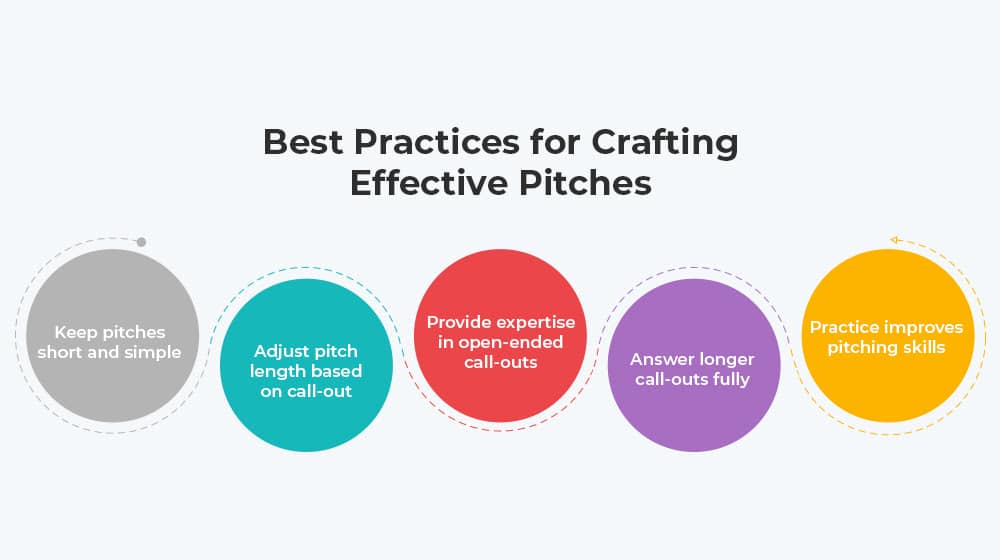
Sometimes a call-out will be longer and more clearly designed to be used as-is rather than as a foot in the door for an email thread. If that's the case, try to answer the questions fully. Your response may end up longer, but more likely to be accepted if it doesn't need back-and-forth messaging.
This is the biggest area where experience helps, so the more pitches you write, the better you'll be.
Respond to call-outs as soon as possible.
Speed is absolutely critical for any of these PR platforms. If you have to set up email alerts to send push notifications to your phone, do it. If you're not sending a response until hours after the call-out is posted, you're probably too late.
The exception is for cases where a call-out is re-posted. That usually means the publisher didn't get what they wanted, so you have more opportunity there. Still, don't dally and waste time.
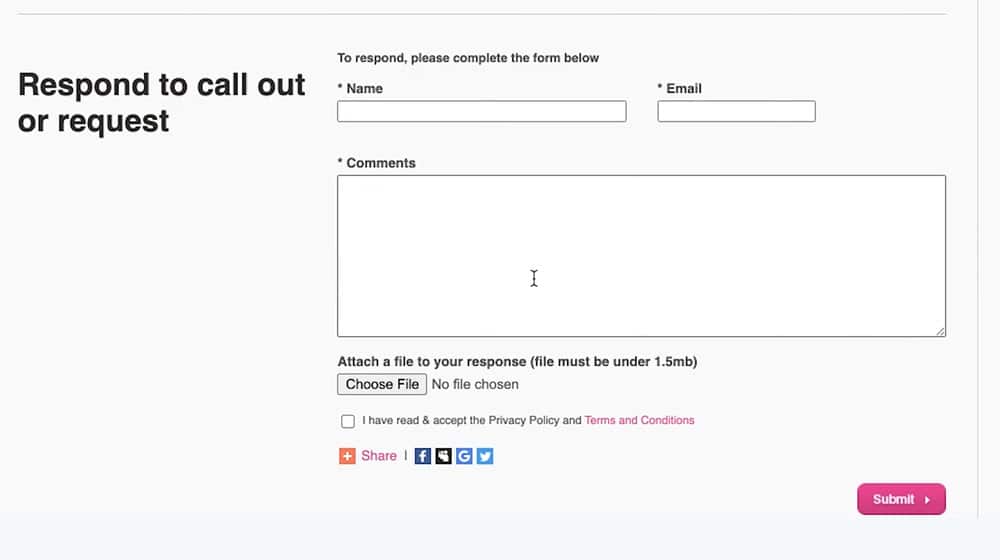
Getting that bio written to start any of your pitches, so you only need to write a few sentences, is a good way to shortcut the process.
Don't hide your wisdom.
I've seen a few blogs recommend trying to hide your value and lead on a publisher to get them to reach out and talk to you. Honestly, I think that advice is complete bunk. Playing coy when you're trying to get a citation is just wasting time. You're just one of dozens of responses the publisher is getting; if the choice is between emailing you or just using the information from someone else, what do you think a time-pressed writer is going to choose?

The trick is to know when you're getting into "too much" territory. You want to give enough information that it can be used as-is while still making it clear that if they want to know more, you can chat all day.
Consider offering a gift bag.
One of the unique features of SourceBottle is the option for experts to offer a goodie back to publishers. Publishers can then review the products you give them, sort of like a sponsorship but without the monetary exchange.
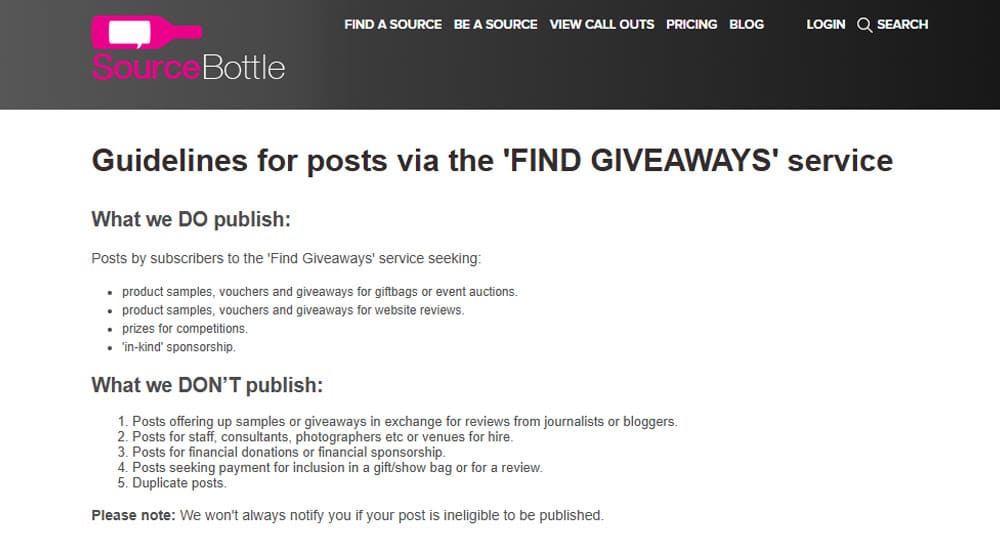
If you have a store with a lot of products, putting together a goodie bag can be a great idea. Even brands with a single larger product or service can offer free trials or codes to publishers. It can be a good way to use one of the more stand-out features. Just be more vigilant with the geographic settings; while you can get value out of a link from an Australian blog, paying shipping to Australia might not be worth it.
Let me do it all for you.
Your best option, truth be told, is to let an expert handle it all for you. I set up a link building and outreach service, completely done for you, which you can learn about here.
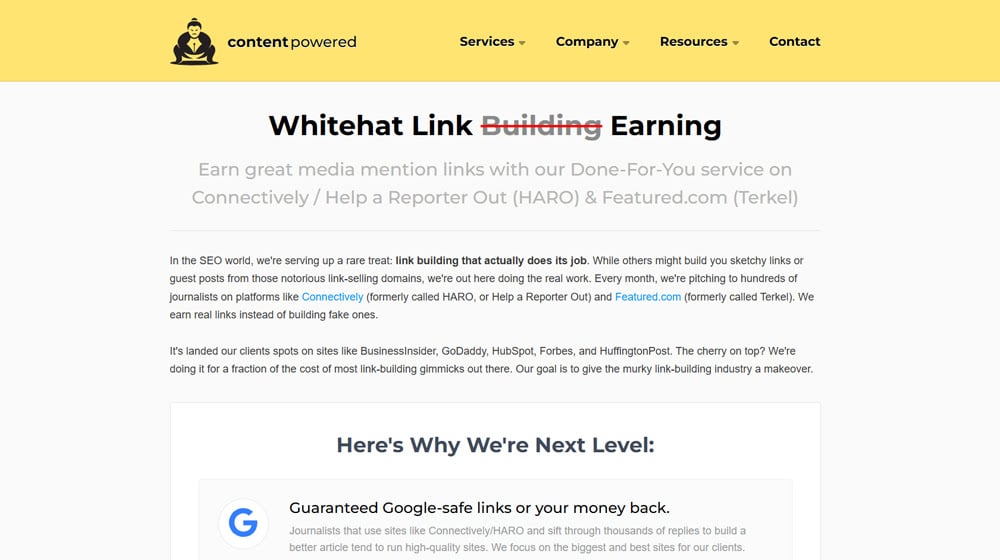
I've used a bunch of these PR platforms, including Connectively (RIP), Qwoted, Featured, and SourceBottle. Whichever one you want – or even if you don't care which you use – I can help. Why not drop me a line?




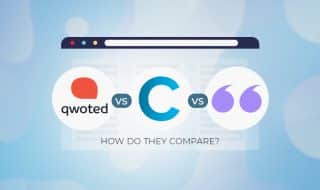





Comments